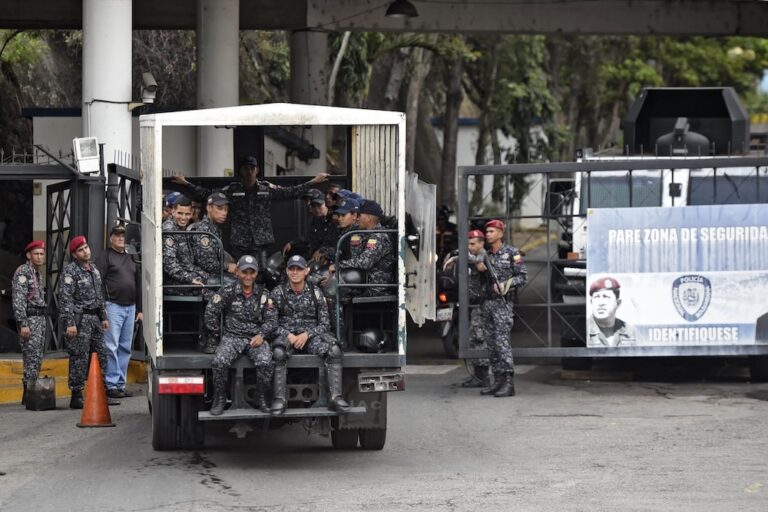(IFJ/IFEX) – The IFJ Latin American Regional Office condemns the detention of Telemundo International television reporter Milagros Rodríguez and the confiscation of her journalistic material. Rodríguez was working on a story about the upcoming wedding of President Hugo Chávez’s daughter. Rodríguez and her crew had interviewed “El Universal” social columnist Mayte Navarro, who had published […]
(IFJ/IFEX) – The IFJ Latin American Regional Office condemns the detention of Telemundo International television reporter Milagros Rodríguez and the confiscation of her journalistic material. Rodríguez was working on a story about the upcoming wedding of President Hugo Chávez’s daughter.
Rodríguez and her crew had interviewed “El Universal” social columnist Mayte Navarro, who had published an article on 9 March 2003 about the supposed extravagance of the upcoming wedding of Rosa Virginia Chávez Colmenares, President Chávez’s daughter from his first marriage. Rodríguez and her crew were filming the exterior of Miraflores Palace, the seat of government, where the wedding ceremony was to take place on 15 March, in order to run the images at the end of the interview segment with Navarro.
While Rodríguez and her crew were filming the palace, they were approached by military security officers, who escorted her alone into the palace. Rodríguez was interrogated and finally forced to hand over the video cassette from her camera. The cassette had several unedited pieces on it. So as not to lose all the work on the cassette, Rodríguez offered to delete the material that she had taken at Miraflores, the material that supposedly violated regulations, but the officers refused.
In a statement to the IFJ Latin American Regional Office, Rodríguez said that the officers told her that the footage was confiscated because photographing or taking video footage of the palace, which has been the seat of Venezuela’s government for almost a century, is forbidden.
IFJ Regional Coordinator Gregorio Salazar said that incidents like the one that Rodríguez and her crew experienced are “outrageous and inconceivable in a democracy. But journalism in Venezuela enjoys fewer guarantees and less protection from the state every day,” he added, “despite all the international appeals and alerts that have been lodged over the past four years. We reject these kinds of governmental practices outright.” In 2002 alone, there were more than 200 physical and verbal assaults against journalists, as was recently reported to the Inter-American Commission on Human Rights (IACHR), a branch of the Washington-based Organization of American States (OAS).


